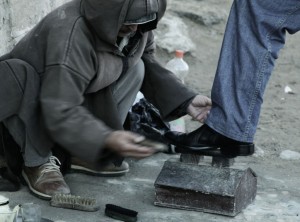 I thought this was a good insight from Robert J. Shiller, economics professor at Yale. He was commenting on the book Fault Lines: How Hidden Fractures Still Threaten the World Economy
I thought this was a good insight from Robert J. Shiller, economics professor at Yale. He was commenting on the book Fault Lines: How Hidden Fractures Still Threaten the World Economy, by Raghuram G Rajan. (emphasis added)
Inequality has been getting worse, particularly in the US, but also in Europe and Asia and many other places. One thing that this has done is it has encouraged governments, who are aware of the resentment caused by the rising inequality, to try to take some kind of steps to make it more politically acceptable. He gives other examples as well, but historically, that has often taken the form of stimulating credit: instead of fixing the problems of the poor, lending money to them. He has a chapter entitled ‘Let them eat credit’.
The US in particular has stimulated the housing market, it has subsidised lending to people, which drove up home prices in an unsustainable way. And there wasn’t that much concern about, or understanding of, the sustainability of this. …
I think inequality is a huge emerging problem, and that our society has to think about dealing with it in a constructive and real way – not through ‘Let them eat credit,’ not through wishful thinking. We have to understand how we get inequality and what we can do about it.
Related links:
Where the poor live: The more polluted part of town
Income inequality and American politics
Why the US doesn’t have universal health care
Life expectancy of the rich and the poor
Resources:
Image: P.A.P.-Blog
Interview by Sophie Roell, Robert Shiller on Human Traits Essential to Capitalism, Five Books, January 24, 2011
Raghuram G. Rajan, Fault Lines: How Hidden Fractures Still Threaten the World Economy


Sorry, comments are closed for this post.